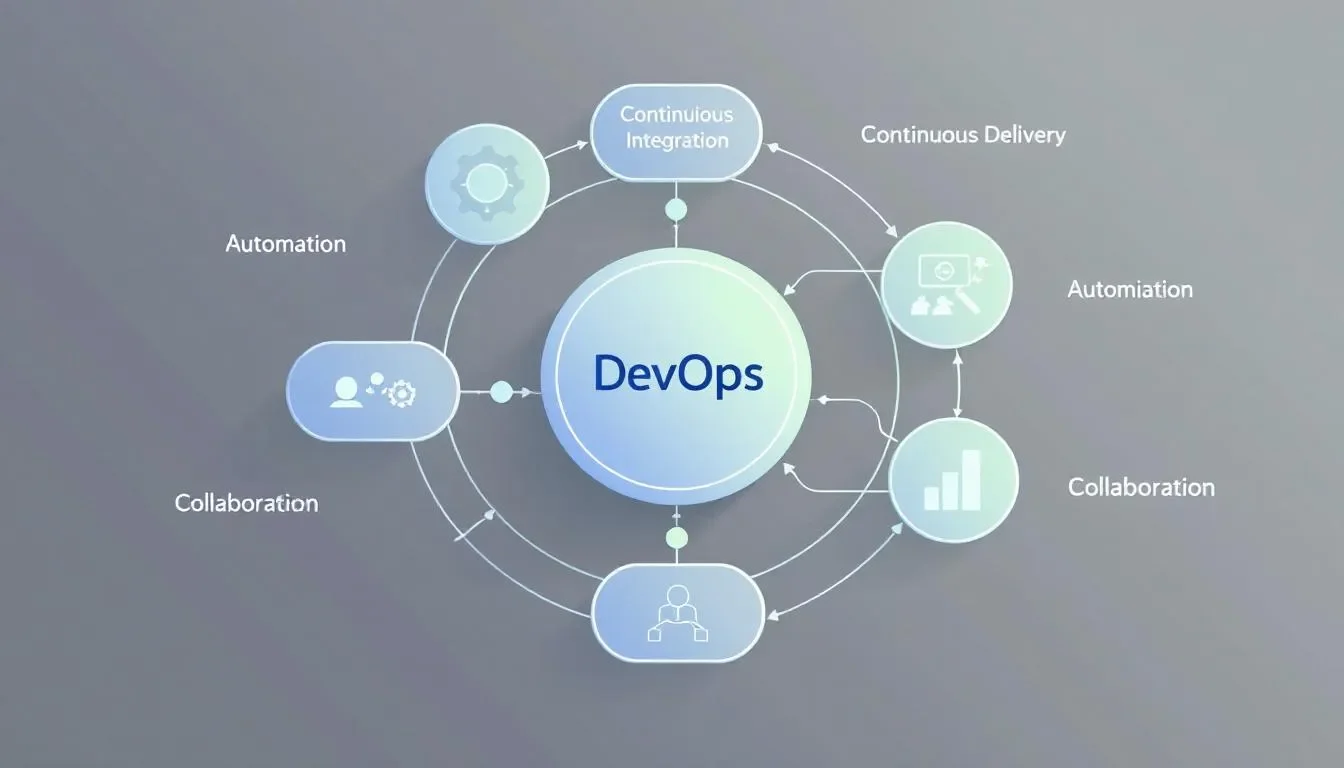DevOps has become essential in modern software development. By combining development and operations, it enables faster delivery, stronger collaboration, and more reliable software. This article explores the principles, practices, and impact of DevOps across industries.
Understanding DevOps
DevOps is a devops methodology that combines development and operations, focusing on enhancing an organization’s capacity to deliver applications and services rapidly. DevOps allows companies to gain a DevOps is a methodology that integrates development and operations to accelerate software delivery and improve quality. Instead of working in silos, teams share responsibility across the entire lifecycle, from planning and building to testing, deploying, and monitoring.
This integrated approach emphasizes automation and continuous improvement, reducing errors while ensuring that every stage of development feeds smoothly into the next.
Core Principles of DevOps

Three principles form the foundation of DevOps:
- Continuous Integration (CI): Regularly merging code changes into a shared repository to detect and resolve issues early.
- Continuous Delivery (CD): Automating deployments so updates can be released reliably at any time.
- Automation: Streamlining tasks like testing, integration, and infrastructure management so teams can focus on innovation instead of repetitive work.
Together, these principles ensure faster cycles, higher quality, and more resilient releases.
Enhancing Collaboration and Communication
A key benefit of DevOps is stronger collaboration between development and operations. By working together throughout the lifecycle, teams reduce handoff delays, minimize errors, and improve accountability.
Effective communication and shared tools also break down silos, making deployments safer and more frequent. Many organizations set up a DevOps Center of Excellence to centralize best practices and ensure knowledge is shared across teams.
Improving Software Quality and Reliability
Automation plays a major role in boosting software quality:
- Continuous testing validates every code change, reducing defects.
- Parallel test execution speeds up feedback cycles.
- Reusable test scripts increase efficiency across projects.
In addition, continuous monitoring allows teams to detect issues in real time and resolve them before they impact users. These practices collectively lead to higher quality and more reliable software.
Accelerating the Software Delivery Process
Continuous deployment enables organizations to release new features rapidly and respond quickly to market demands. Automated testing ensures only high-quality code reaches production, while deployment strategies like canary releases and blue/green rollouts reduce risk by limiting exposure before full release.
With faster delivery and real-time feedback from users, organizations gain agility and a competitive edge.
Key DevOps Practices
Modern DevOps relies on several practices and tools:
- CI/CD pipelines to automate integration and deployment.
- Infrastructure as Code (IaC) for managing infrastructure with configuration files, ensuring consistency and scalability.
- GitOps for version-controlled infrastructure and deployments.
Popular tools such as AWS CloudFormation and Terraform support these practices, making complex environments easier to manage.
Real-World Applications of DevOps
DevOps is widely adopted across industries:
- E-commerce: Supports rapid feature releases, seamless payment integration, and the ability to scale during peak shopping periods.
- Healthcare: Ensures reliability and security in applications handling sensitive patient data, while enabling timely updates.
- Financial Services: Through DevSecOps, institutions improve compliance, automate monitoring, and strengthen data protection.
These examples highlight how DevOps drives both innovation and operational efficiency.
Emerging Trends in DevOps
The future of DevOps is being shaped by:
- AI and Machine Learning: Automating anomaly detection, testing, and monitoring.
- Cloud-native and serverless technologies: Increasing scalability and reducing infrastructure overhead.
- AIOps: Combining automation with intelligent analysis for faster decision-making.
- DevSecOps: Embedding security across the entire lifecycle to reduce risks.
These trends reinforce DevOps as a cornerstone of modern software delivery.
Becoming a DevOps Engineer
The demand for DevOps engineers has surged, with mentions of DevOps as a skill on LinkedIn increasing by 50%. A successful DevOps engineer should focus on collaboration and continuous learning to thrive in a constantly evolving technological environment. Continuous learning is essential for staying up-to-date with the latest tools, practices, and trends in DevOps.
In terms of compensation for DevOps engineers in the United States:
- Senior-level DevOps engineers can expect to earn more than $120,000 annually.
- The average annual salary for a DevOps engineer is approximately $108,549.
- Entry-level DevOps engineers typically earn between $70,000 and $90,000 per year.
This makes it a lucrative career path for those with the right skill set and dedication.
Challenges and Solutions in DevOps Implementation
Common challenges in DevOps implementation include:
- Difficulties in putting DevOps methods into practice.
- Managing multiple environments for app development, staging, and production.
- Transitioning from legacy systems to microservices architecture, which introduces significant complexity and requires careful planning and execution.
- Ensuring effective governance, which is crucial for defining team access to production resources and outlining necessary change control processes.
Automated security measures are central to DevSecOps, ensuring that vulnerabilities are detected early in the development process. Identifying appropriate success metrics for DevOps requires expertise to accurately measure the value delivered to the organization.
Additionally, budgeting for DevOps initiatives is essential to realize potential benefits and avoid partial implementations that may cause issues. Addressing these challenges enables organizations to successfully implement DevOps and achieve their business objectives in software development.
The Future of DevOps
Current trends impacting DevOps include the shift towards cloud-native technologies, serverless computing, and an increased focus on machine learning operations (MLOps). The practice of DevSecOps ensures that security is integrated throughout the development lifecycle, promoting proactive risk mitigation while maintaining fast development flows. These trends are expected to shape the future of DevOps, making it even more integral to modern software development, especially with the concept of shifting security.
DevOps has become the new norm for efficiency and innovation and is increasingly adopted across diverse industries, reinforcing its significance in devops in modern software development. Organizations may face challenges such as selecting the right devops tools and ensuring proper training, which can hinder the integration of the devops team and DevOps practices, highlighting the importance of a solid devops strategy and the devops model relies.
However, with the right approach and mindset, DevOps will continue to drive innovation and efficiency in the software development landscape.
Summary
DevOps has revolutionized modern software development by integrating development and operations teams, promoting collaboration, and enhancing efficiency. From its core principles of continuous integration, continuous delivery, and automation to its real-world applications in industries such as e-commerce, healthcare, and financial services, DevOps has proven to be a game-changer. By embracing DevOps practices, organizations can improve software quality, accelerate the software delivery process, and address common implementation challenges effectively.
As we look to the future, emerging trends such as AI/ML integration, cloud-native technologies, and AIOps will continue to shape the DevOps landscape. The demand for skilled DevOps engineers will remain high, offering lucrative career opportunities for those who are willing to continuously learn and adapt. By staying ahead of these trends and overcoming challenges, organizations can leverage the full potential of DevOps to drive innovation and achieve their software development goals.



